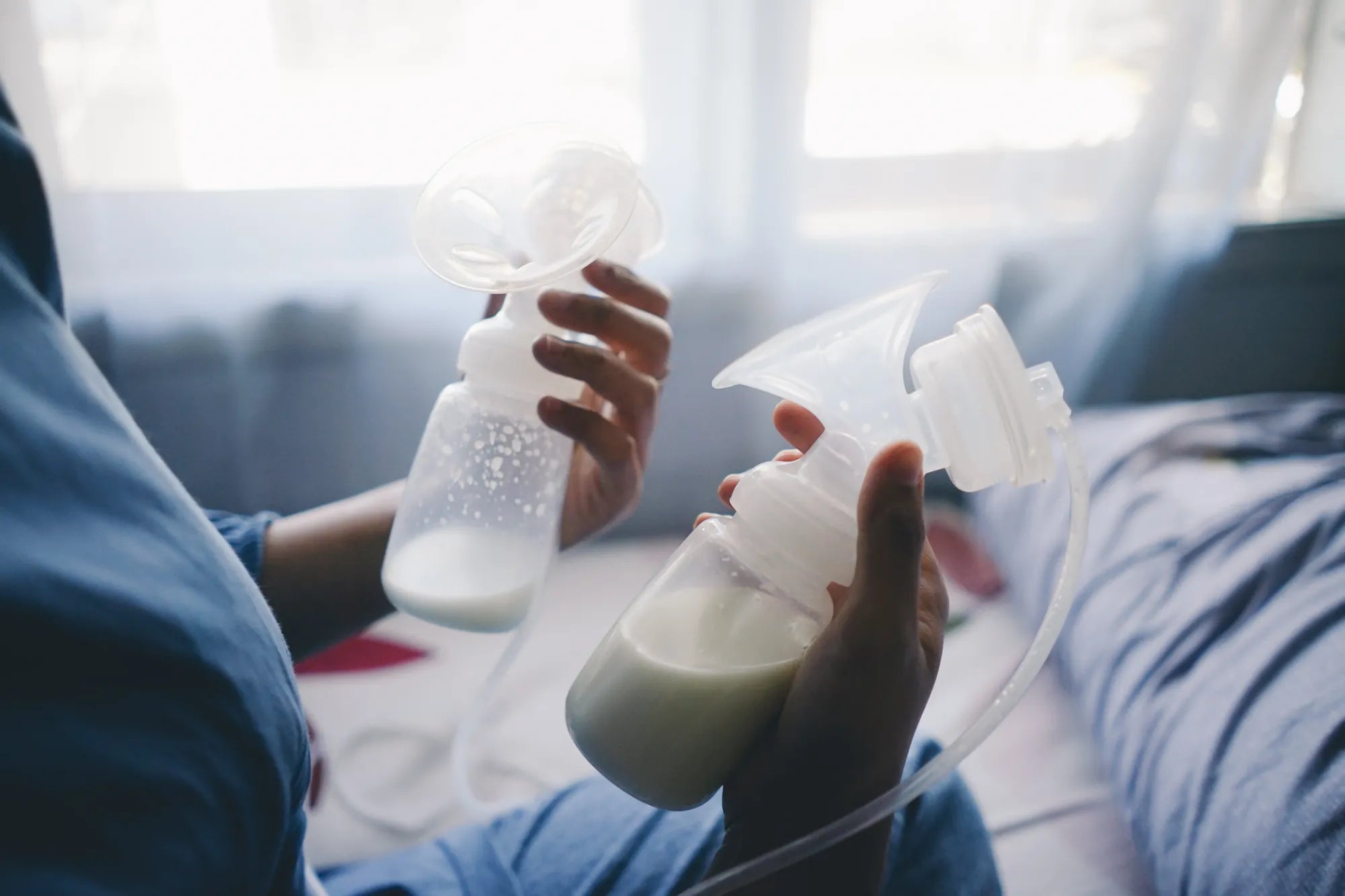Home
Pregnancy, Breastfeeding, and Pumping: The Ultimate Guide for Moms
Can You Pump Breast Milk While Still Pregnant? Exploring the Facts

Can You Pump Breast Milk While Still Pregnant? Exploring the Facts
Pregnancy is a time of profound physical and emotional changes, and many expectant mothers wonder about the possibilities of preparing for breastfeeding even before their baby arrives. One common question that arises is: can you pump breast milk while still pregnant? This article delves into the science, potential benefits, risks, and expert opinions surrounding this topic to provide a comprehensive understanding.
Understanding the Physiology of Breast Milk Production
Breast milk production, also known as lactation, is a complex process regulated by hormones. During pregnancy, the body prepares for breastfeeding by increasing levels of prolactin and estrogen. These hormones stimulate the growth of milk ducts and the development of mammary glands. However, the production of mature breast milk typically begins after childbirth, triggered by the delivery of the placenta and a drop in progesterone levels.
While some women may notice colostrum, the nutrient-rich first milk, leaking during pregnancy, this does not necessarily mean that pumping is advisable or effective at this stage. The body’s primary focus during pregnancy is to support the growing fetus, and pumping breast milk prematurely could interfere with this delicate balance.
Is It Safe to Pump Breast Milk While Pregnant?
The safety of pumping breast milk during pregnancy is a topic of debate among healthcare professionals. Some experts caution against it, as nipple stimulation can trigger uterine contractions. This is because the hormone oxytocin, released during nipple stimulation, is the same hormone responsible for inducing labor. For women with high-risk pregnancies or a history of preterm labor, pumping could potentially increase the risk of early delivery.
On the other hand, some studies suggest that gentle pumping in the later stages of pregnancy may be safe for women with low-risk pregnancies. However, it is crucial to consult a healthcare provider before attempting to pump breast milk while pregnant. Every pregnancy is unique, and what works for one woman may not be suitable for another.
Potential Benefits of Pumping Breast Milk While Pregnant
For some women, pumping breast milk during pregnancy may offer certain advantages. For instance, collecting colostrum before birth can be beneficial for mothers who anticipate breastfeeding challenges or have medical conditions that may affect milk supply. Additionally, having a supply of colostrum on hand can be reassuring for mothers of premature babies or those with specific health needs.
Another potential benefit is the opportunity to familiarize oneself with the pumping process. For first-time mothers, learning how to use a breast pump and understanding the mechanics of milk expression can help build confidence and reduce anxiety about breastfeeding after delivery.
Risks and Considerations
While there may be potential benefits, pumping breast milk during pregnancy also comes with risks. As mentioned earlier, nipple stimulation can lead to uterine contractions, which may pose a risk for preterm labor. Additionally, pumping too early in pregnancy may not yield significant amounts of milk, leading to frustration or disappointment.
It is also important to consider the emotional and physical toll of pumping during pregnancy. Pregnancy itself can be exhausting, and adding the extra task of pumping may lead to fatigue or stress. Women should weigh these factors carefully and prioritize their well-being.
Expert Recommendations
Most healthcare providers recommend against pumping breast milk during pregnancy unless there is a specific medical reason to do so. For women who are interested in collecting colostrum, it is generally advised to wait until the late third trimester and only under the guidance of a healthcare professional. This minimizes the risk of preterm labor while still allowing mothers to prepare for breastfeeding.
For those who are eager to prepare for breastfeeding, there are alternative ways to get ready. Attending breastfeeding classes, reading educational materials, and discussing concerns with a lactation consultant can be valuable steps in the journey toward successful breastfeeding.
Alternative Ways to Prepare for Breastfeeding
If pumping breast milk during pregnancy is not recommended or feasible, there are other strategies to prepare for breastfeeding. One effective approach is to focus on maintaining a healthy lifestyle. Eating a balanced diet, staying hydrated, and getting adequate rest can support overall health and lay the foundation for successful lactation.
Another helpful step is to learn about proper breastfeeding techniques. Understanding how to position the baby, recognize hunger cues, and address common challenges can make the transition to breastfeeding smoother. Additionally, building a support network of family, friends, or breastfeeding groups can provide encouragement and practical advice.
When to Start Pumping After Delivery
For most women, the best time to start pumping breast milk is after the baby is born. In the first few days postpartum, the body produces colostrum, which is highly nutritious and essential for the newborn’s immune system. Once mature milk comes in, typically within a few days after delivery, mothers can begin pumping to establish and maintain their milk supply.
Pumping after delivery can be particularly useful for mothers who need to return to work, have difficulty with direct breastfeeding, or want to build a freezer stash of milk. It is important to follow proper pumping techniques and maintain a consistent schedule to ensure adequate milk production.
Conclusion
While the idea of pumping breast milk while still pregnant may seem appealing, it is essential to approach this practice with caution. The potential risks, such as preterm labor, outweigh the benefits for most women. Consulting a healthcare provider and exploring alternative ways to prepare for breastfeeding are the safest and most effective strategies.
Ultimately, every mother’s journey is unique, and what works for one may not work for another. By staying informed, seeking professional guidance, and prioritizing self-care, expectant mothers can set themselves up for a positive and successful breastfeeding experience.
Curious to learn more about breastfeeding and pregnancy? Dive deeper into the science and practical tips to empower yourself on this incredible journey!
Share


